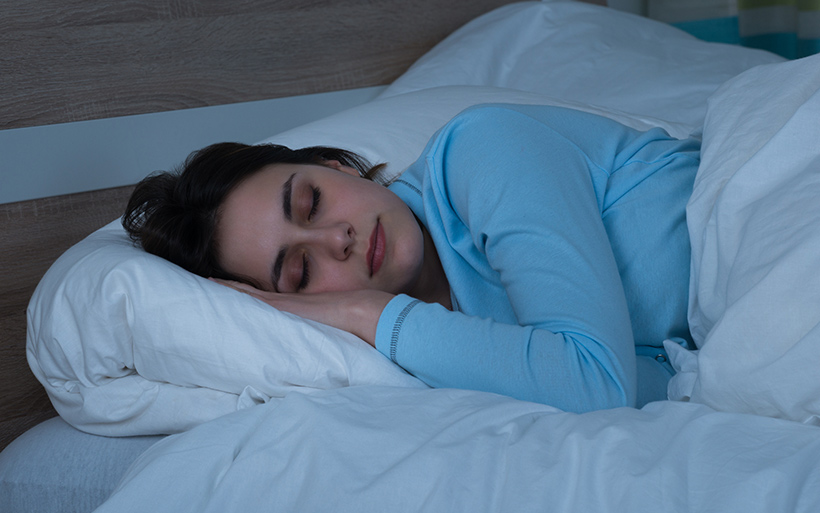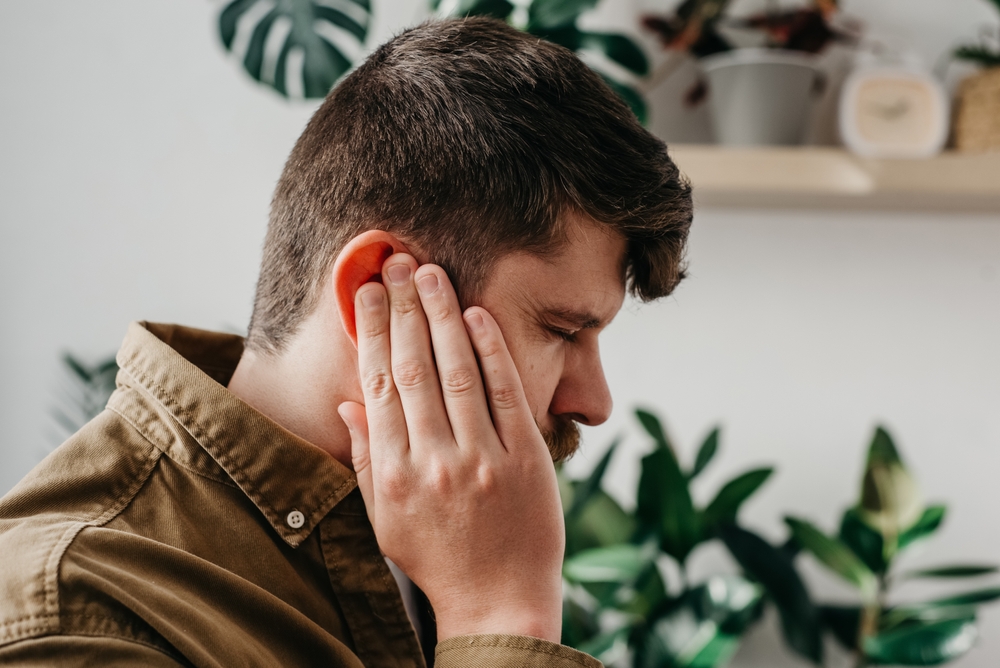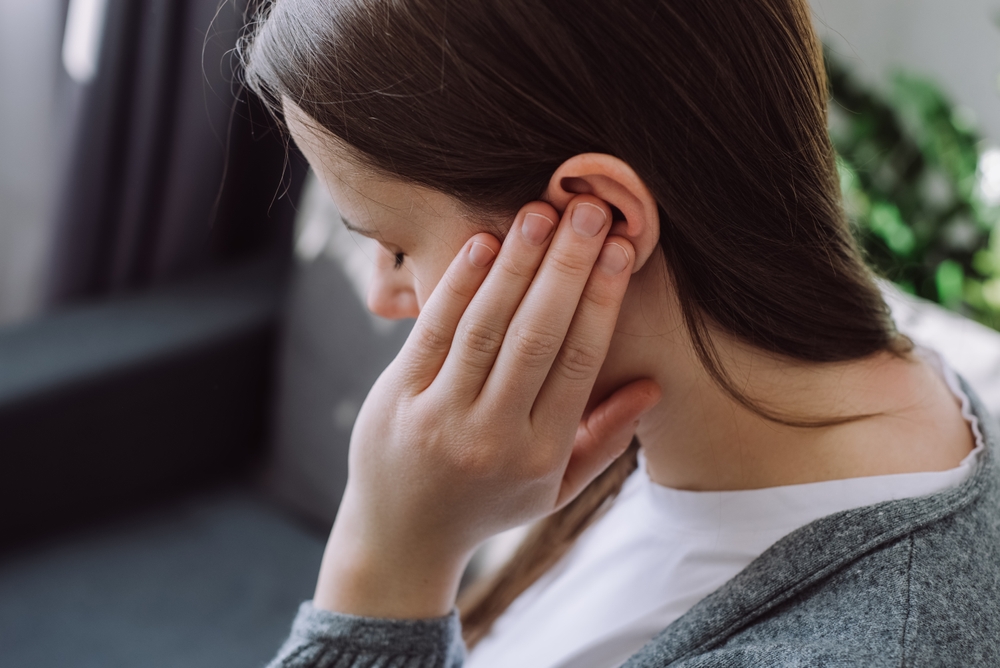Millions of people suffer from tinnitus, which can range from a spectrum of mild annoyance to a debilitating and disabling condition. Whether your tinnitus is characterized by humming, ringing, static or some other sound, this condition makes it hard to function in daily life.
Communication is difficult. Relaxing becomes a battle to ignore the sound. The constant struggle to manage your tinnitus can induce stress and may contribute to anxiety and depression. In some cases, the condition may even be painful. Worst of all for many people, it makes sleeping soundly near impossible, since a quiet bedroom can make tinnitus deafening. This lack of sleep, either in the form of sleep deprivation or insomnia, can cause many more health problems and start you down a cycle that’s difficult to control.
Can lack of sleep make tinnitus worse?
Unfortunately, it’s a vicious cycle: tinnitus makes sleeping difficult, while a lack of sleep makes tinnitus worse due to stress. Poor sleep or lack of sleep increases your worries and anxiety, which in turn keeps you very fixated on your tinnitus and how it’s keeping you awake.
There are some steps you can take to combat the ringing in your ears that’s causing your sleep deprivation or insomnia. Many people turn to white noise machines at night to try to block out the tinnitus sounds, while others find that avoiding the blue light emitted by TV, computer, or phone screens before they go to bed helps them relax more. There is also evidence that working with a mental health professional and practicing mindfulness can help to cope with tinnitus symptoms better – not exactly getting rid of the sounds, but instead learning to deal with them in a way that allows you to relax and compartmentalize.
But in addition to treating the symptoms of tinnitus, you should understand more about the connection between this hearing condition and insomnia.
Insomnia and causes of tinnitus
No one knows why we need to sleep, but it’s obviously a very essential part of staying healthy, both in mind and body. Everyone can tell the difference between a good night’s rest and a sleepless night, but there are many issues that can develop from sleep deprivation, or worse, insomnia. These include depression, high blood pressure, heart disease, and risk of stroke. These health concerns can also lead to hearing loss and tinnitus.
A study by the Henry Ford Health System found that insomnia has a clear impact on the perceived severity of tinnitus amongst sufferers of both conditions, who reported more sensitivity to the condition and struggles with functional and emotional health related to the ringing in their ears.
However, researchers think they may have discovered a new way to relieve this burdensome ailment, while at the same time help people get more of the sleep they desperately need.
While their findings are still in the experimental stage, they do offer some promising results that could help tinnitus and insomnia sufferers in the future.
Let’s explore what they’ve found.
What new technology offers tinnitus relief?
Scientists are researching a sound-emitting device that can be worn while you sleep. This device may be able to train the brain to ignore tinnitus sounds. Much like you can sometimes “tune out” a lawnmower next door or traffic in the neighborhood to the point that you don’t hear it anymore, this device helps you “tune out” your tinnitus.
Tuning out tinnitus at night is key to battling sleep deprivation and insomnia. That’s because in the relative quiet of your bedroom, there are no sounds competing against the ringing or humming in your ears. This uncontested noise in your ears sounds louder than normal, and you usually don’t have anything to distract yourself away from the noise. As noted above, white noise machines are generally used to try to combat tinnitus, but this new sound-emitting device took a different approach. While the tinnitus symptoms didn’t go entirely away, study participants reported finding their tinnitus less bothersome after using the device.
Does sleep deprivation cause tinnitus?
This sound-emitting device could provide relief to people who have been unable to get rid of these tinnitus symptoms, but it’s important to realize that it only masks the symptoms and does not actually cure the condition. There may be an underlying cause of your tinnitus that needs to be addressed by a professional.
While insomnia and sleep deprivation seem to make tinnitus worse, they do not cause the condition. Here are some of the things that may cause tinnitus, including:
- Exposure to loud noises
- Hearing loss
- Brain tumor or other tumors
- Meniere’s disease
- Damage to the ear canal
- Earwax buildup
- Ear infection
- Poor circulation
- Anemia
- Thyroid issues
In some of these cases, such as tumors, poor circulation, and anemia, your tinnitus may be warning you of a more serious health challenge that you need to address. Don’t ignore it. Heart conditions may cause tinnitus due to a lack of blood flow, which can be especially dangerous.
Schedule an appointment for an evaluation. If the cause can be corrected, the tinnitus may go away or some solutions may reduce your symptoms.



